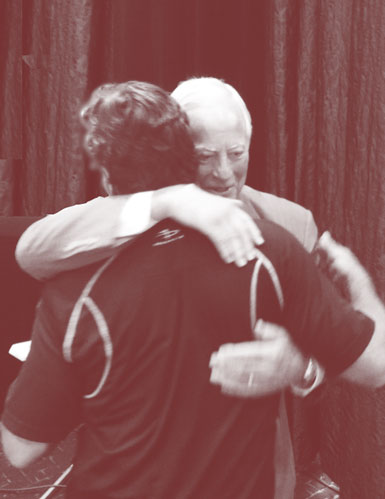By: Martin Grunburg
On my run the other day, Brian Tracy’s “Law of Indirect Effort” popped into my playlist.
BT is an amazing man. He’s authored some 60-plus books — and that makes up just a fraction of his personal development portfolio. I simply refer to him as a living legend.
What’s sorta funny, though, is that he’ll declare many of his major lessons as “Laws,” such as the Law of Indirect Effort.
But, make no mistake, when it comes to The Law of Indirect Effort this isn’t some foo-foo stuff; it is very real. In fact, this law is backed by the science of human relationships and psychology.
So, not only is BT a great mentor (thanks to EB for the intro many moons ago), he’s widely influenced my work for about a decade now.
Having said that, I highly recommend either The Psychology of Achievement (Simon & Schuster Audio/Nightingale-Conant) or his book, Maximum Achievement. Here, he elaborates on what he calls “The Law of Indirect Effort” and how it applies particularly well to our relationships.
He cites a statistic that suggests relationships will account for about 85% of one’s joy, happiness and satisfaction in life, and that our achievements (including finances) only account for the remaining 15%.
With that in mind, the value of our relationships as they correspond to our overall well-being cannot be overemphasized.
Here’s How the Law of Indirect Effort Works:
“In our activities with other people, the best way to attain whatever it is we seek is via indirect means rather than in a direct way.”
Meaning, for example, that if we want other people to respect us, it is imperative that we respect them.
If we want people to be interested in us, it’s essential that we are interested in them.
When we want people to be kind to us … (I think you get the picture).
You might think this is obvious and it isn’t worth reiterating, but based upon the demand for something like our “happiness webinar” many months back, it appears these are lessons or “laws” that are valuable and worth reiterating.
And, when it comes to happiness in particular, this law seems to remain largely a mystery. How many people do you know who seek happiness, directly, only to be left lonely, unfulfilled and sad?
Viktor Frankl, author of “Man’s Search for Meaning,” often said, “Happiness cannot be pursued; it must ensue.” In fact, he took that sentiment even further as it applies to the enigma that is “success,” which in many ways is the ultimate example of the Law of Indirect effort at work.
“Don’t aim at success. The more you aim at it and make it a target, the more you are going to miss it. For success, like happiness, cannot be pursued; it must ensue, and it only does so as the unintended side effect of one’s personal dedication to a cause greater than oneself or as the by-product of one’s surrender to a person other than oneself. Happiness must happen, and the same holds for success: you have to let it happen by not caring about it. I want you to listen to what your conscience commands you to do and go on to carry it out to the best of your knowledge. Then you will live to see that in the long-run—in the long-run, I say!—success will follow you precisely because you had forgotten to think about it”
So, when it comes to the essential ingredients of a life well-lived, it’s important to remember that both happiness and success are byproducts — the result — of the Law of Indirect Effort!
